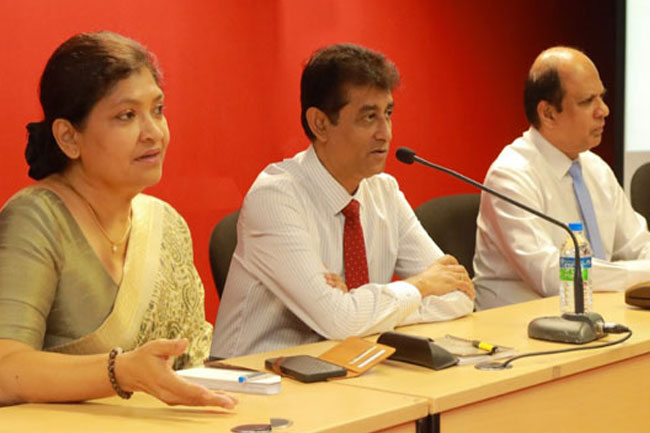BOI initiates industry dialogue on reciprocal US tariffs and the way forward
April 10, 2025 01:19 pm
Chairman of the Board of Investment (BOI) Arjuna Hearth has invited all top 50 exporters of the BOI in key industries to open dialogue to seek alternative strategies to mitigate the consequences due to the new US tariff imposed on Sri Lanka.
Senior advisor to the president Duminda Hulnagamuwa also participated and explained what government initiatives have been taken so far to achieve positive outcomes and stage the negotiations.
The diplomatic-level discussion has already taken place, and our diplomatic officers in Washington, DC, have already established communication with the respective trade delegates at the White House’s trade department. Almost 70 countries have already reached out to the US to seek individual consultations from the US government on specific tariffs to reach a further consensus.
There is a diverse range of Sri Lankan businesses that export to the United States, and around 200 of these are BOI enterprises. In 2024, the U.S. goods trade deficit with Sri Lanka was approximately $2.6 billion, with U.S. goods imports from Sri Lanka totaling $3.0 billion and exports to Sri Lanka at $368.2 million.
The representatives from the apparel industry, rubber industry, food industry, and ornament industry also participated in the discussion. We extensively discussed the differential tariffs of competitive countries in Sri Lanka and their impact on each sector.
The very recent 90-day pause on reciprocal tariffs has had a positive impact and resumed most of the customers’ orders, yet industries are looking beyond the 90 days and alternatives to secure their business.
During the discussion, it was highlighted that most countries are seeking alternative trade agreements and new market opportunities to mitigate the US’s impact on specific economies and seek further trade relationships. These developments encourage Sri Lankan industries to explore partnerships with emerging markets and diversify their supply chains. By fostering collaborations with countries outside the traditional trading powers, they can enhance their resilience and adaptability in an ever-changing global landscape.












